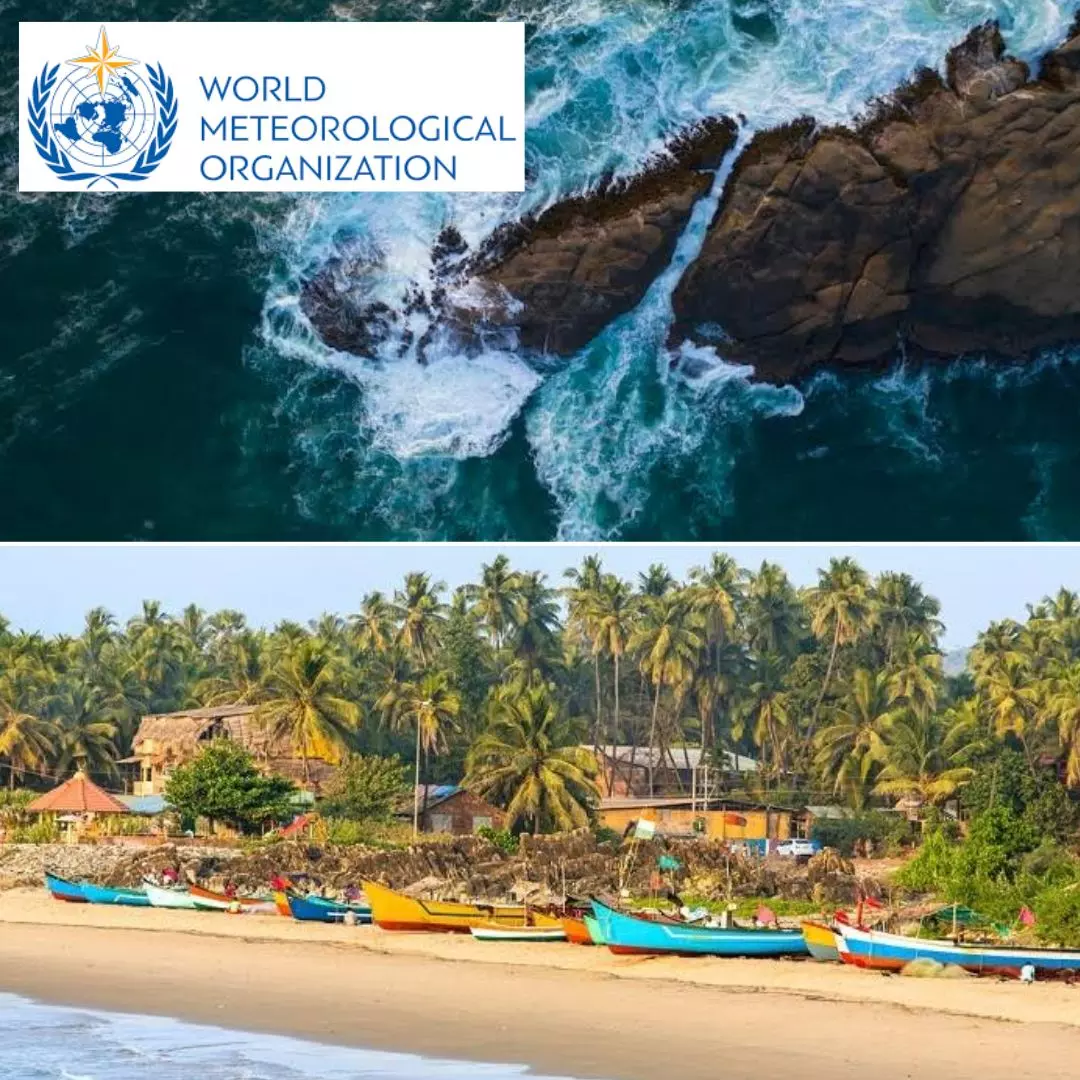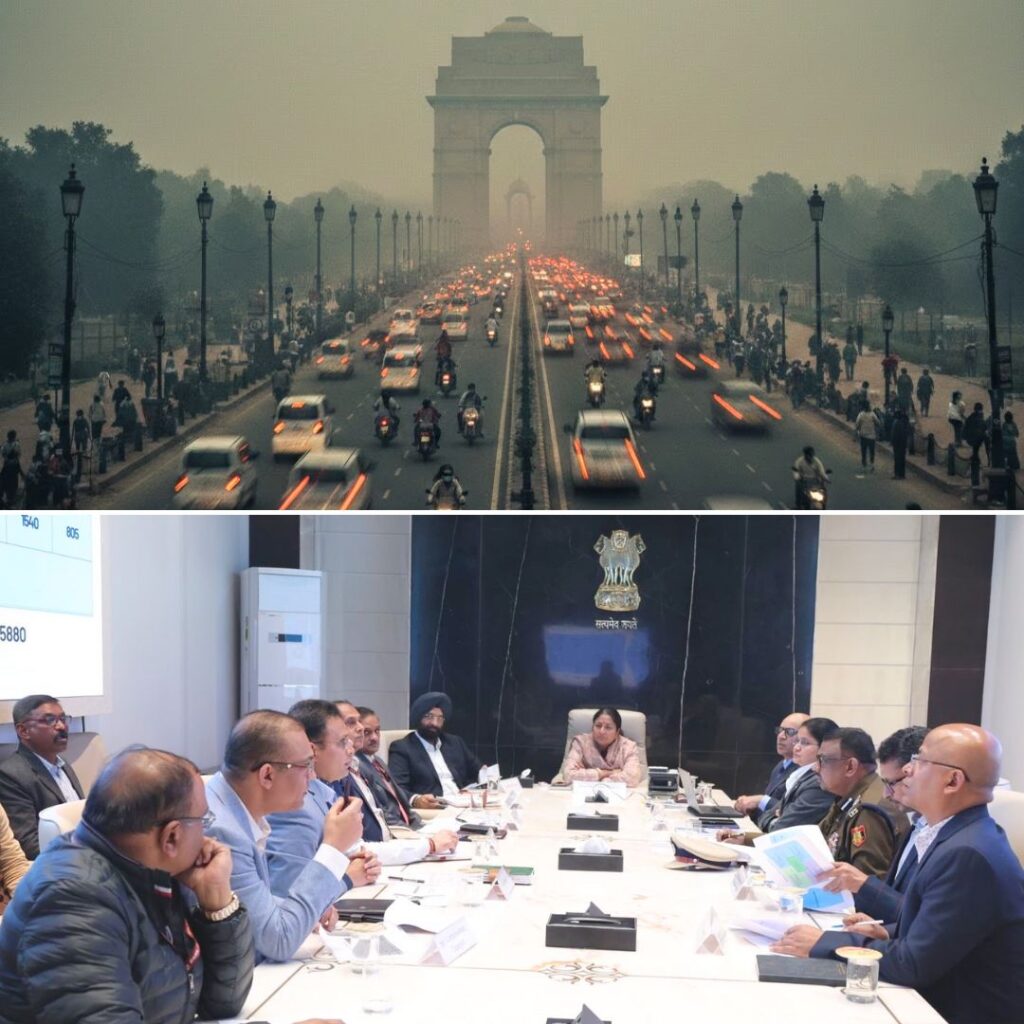Impact of climate change is getting closer and nearer as a report by the World Meteorological Organisation (WMO) claims that the sea level rise across the globe could affect several Indian cities. In the report published on February 21, the WMO said that the sea levels rose by over four millimetres a year on average between 2013 and 2022, and this accounts for up to three times more than the rate at which the sea levels rose between 1901 and 1971.
The report published by the specialised agency of the United Nations, which covers weather, climate, and water resources, conveyed that the water levels would threateningly rise to the extent that would potentially endanger coastal populations and ecosystems.
Oceans Warming Faster Than Before
The report also mentions that with the global oceans warming faster than ever before, countries like India, with their vast coastal populations, would be particularly vulnerable. Among the top global cities that would suffer the first-hand impact of the sea level rise is Mumbai.
The report further conveyed that even if global warming were to remain limited to the Paris Climate Agreement’s goal of 1.5° Celsius, there would still be a significant rise in sea level noted. With the likelihood of countries breaching the limit and drifting apart from the climate goals, the risk further intensifies in its scale of devastation. A Free Press Journal report cited the report and said, “The average global temperature in 2022 was about 1.15°C above the pre-industrial (1850-1900) levels…The likelihood of – temporarily – breaching the 1.5°C limit of the Paris Agreement is increasing with time.”
Assuming that even if countries adopted necessary measures to combat climate change, the sea levels would still pose a threat to countries like India, Bangladesh, China, and the Netherlands. According to the WMO, a two-degree celsius warming could cause a rise of 2-6 m, while five-degree Celsius would mean a 19-22 m rise in the sea levels. With the UN having said that the world could see a 2.4-2.6°C rise in global temperatures, the effect would be nearly catastrophic.
Sea Water Drowning Livelihoods
The WMO report conveyed that thermal expansion is responsible for about 50 per cent of sea-level rise, followed by loss of glacier ice, ice sheets, and changes in land-water storage. Due to the potential intrusion of seawater beneath the Antarctic glaciers, there is a risk of much higher sea-level rise. Providing a solution, the report emphasises the need for an intensive policy discussion at local levels and more adaptation measures to protect coastal populations.
The coastal ecosystems and population are the first groups to be affected by the rising sea levels. With altered sea levels, the intensity of storms and flooding surges, and it then paves the way for the contamination of soil and groundwater with salt. This goes on to impact the food security and livelihood of the coastal population. With a 7,500-kilometer-long coastline divided into nine coastal states, 12 major and 200 minor ports, India remains particularly vulnerable to such impacts. The report also suggested that India could face severe long-term consequences with rising global sea levels.
Anjal Prakash, research director at a reputable Institute and lead author for the IPCC reports, emphasised the need for more adaptation measures to protect fishermen’s livelihoods and ensure water security by providing safe and clean water to coastal residents. Apart from Mumbai, other cities that would be struck by this climate change consequences are Shanghai, Dhaka, Bangkok, Jakarta, Buenos Aires, Santiago, lagos, Maputo, New York, Cairo, and London.
Also Read: How Climate Change Leads To Extreme Sea-Level Events- A Major Cause of Concern In India
https://thelogicalindian.com/h-upload/2023/02/22/500x300_229963-untitled-design-16.webp
Environment
2023-02-22 08:53:40.0
Warnings Blare For Indian Cities With Global Sea-Level Rise: WMO Report












